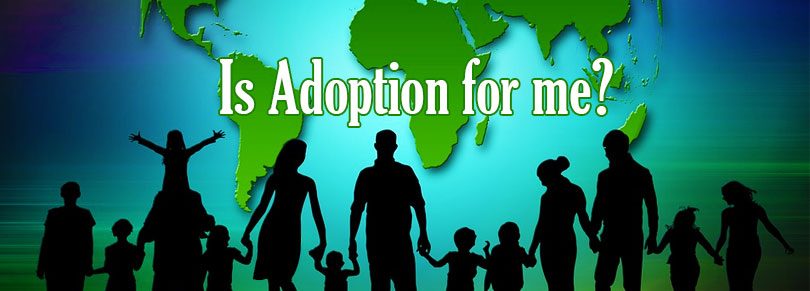They had three biological sons and went on to adopt two more girls. Aloma’s desire to create awareness about adoption soon led to her becoming an expert on adoption. She served as the Chairperson of the Central Adoption Resource Authority (CARA) and subsequently as the Chairperson of the Adoption Coordinating Agency, Karnataka.
In this interview, Dr.Lobo, as an expert, provides deep insight into the adoption scenario in India and as an adoptive mother, provides real, ‘straight from the heart’, practical advice to all who are interested in adoption.
1. What led you to get involved in the field of adoption?
My husband and I always wanted to adopt and when our third son was four years old we adopted our first daughter. At that time very few people were adopting children in India. Most of the children would go to other countries so naturally people were curious about us adopting. They began to think if we could do it maybe they can as well, especially families who did not have children. We slowly began talking to people about it and then became involved with the whole program.
Initially I volunteered with organizations and subsequently became the Chairperson of the Adoption Coordinating Agency and a few years after that I became the Chairperson of Central Adoption Resource Authority (CARA) with the Ministry of Women & Child Welfare. However, more than anything else I prefer working on the ground with families and children rather than in policy making. I am particularly interested in the placement of children with special needs.
2. How would you describe the adoption scenario in India?
Over the years the process has definitely become more streamlined. There are more rules, regulations and checks and balances put into place. But even though the supreme courts have mandated time frames, they are not kept and there are delays at every stage. There is a great delay before a child is placed with a family. This slows down the development of a child to a great extent. On the other hand in today’s scenario, there are more families waiting for children than there are children available for adoption. There are however, very few takers for children who are older and those with special needs.
3. What is the most pressing issue in the field of adoption today?
First of all, the time frames have to be shortened. Secondly, there are plenty of children who need care and protection however very few of them are in the adoption stream. More children need to be released to be adopted. Thirdly, a greater awareness needs to be created on the value of every child, whether the child is healthy, abandoned or is a special needs child. As a people, our attitude towards children needs to change. It has greatly changed over the years no doubt, but it still needs work.
4. How do you counsel couples who are considering adoption?
A lot of couples who come to us do not have biological children and have issues with infertility. We first determine if they have come to terms with infertility and want to move on. If we feel that they have not come to terms with it, they are sent for further counselling. The main aspect we look at is, why they want to adopt. We ask the couple to write an autobiography about why they want to adopt a child, their relationship, their own childhood, parenting views, infertility issues etc.
We learn a lot from this and the couple discovers a lot about themselves through this process. We do individual counselling at their homes and we also have seminars with other families where they can share and learn. This helps them think and rethink; some couples back out after this and decide they aren’t ready because they had not considered all the issues that could crop up. We also determine if they have their family’s buy in.
If it is a nuclear family then the extended family just needs to be informed. However, if it is a joint family, there needs to be acceptance because the child cannot enter into a hostile environment. We also give them a questionnaire about what kind of child they want with options like ‘dark skinned’, light skinned’, ‘does not matter’; religious backgrounds etc. The answers tell us a lot about the attitude of the couple. Do they want a child or do they want a trophy to carry around! These give us a lot of insight.
5. What would your advice be for those who have applied and have been waiting for months/years with no news?
This might sound like a cliché but I believe that there is a child for everybody waiting for them somewhere. The child will come to you. I know it can be frustrating but when the time is right, it will happen. In the meantime, do all that you need to do to get a child.
6. There are quite a few people who do not believe in adoption because they have witnessed adopted children struggle with identity related issues. How would you address their concerns?
Issues with identity can crop up with a biological child as well. The child needs to grow up knowing that he/she is adopted and parents need to be open and honest with the child. Tell them all that they need to know; let them ask questions. These issues can be dealt with, they may not all go away but we’ve never had any issues because we were always open with our kids. The child certainly has a right to know and parents have the right to share the truth with them.
Some educated parents still think that they don’t need to tell them and there are cases where other people have told the child and the parents still have not, which is a terrible situation for the child. It should be shared when the child is very young. It should be told normally and naturally when the child can absorb the information. If all these things are dealt with by the time they are 10 or 11 years old, it won’t come up again.
7. How much should adoptive parents share about the history of their child with friends and family?
It is not necessary to share details with anyone else. The child’s past does doesn’t belong to you; his/her story begins the day you brought them home. Don’t put a label on your child. People will ask questions and they mean well, most of the time. You don’t need to share these details; no one asks you how much labour you went through, how many stitches you had but if you’ve adopted they feel entitled to ask you every single detail!
People ask me why I adopted a special needs child and I tell them to tell me one reason why I shouldn’t have and I’ll give them 250 reasons why I should. Every human being is of equal value. People will also say that it was so good of you to have adopted a child but don’t let them devalue your child – he/she is not an object of your charity.
8. Many couples wonder whether they would love an adopted child as much as a biological child. How would you address this concern?
They need to keep in mind that it was a biological mother who gave the child away so biology does not make you love a child. Being a parent is not biology, being a parent is a relationship. Love is a relationship that changes and grows and matures as the years go by. Biology does not make you automatically love anyone. Love is a decision.
9. What is your advice to adoptive parents?
If families give adoption the same value that they give biology, it will transfer to the people around them. You should never be ashamed to say that you adopted your child but at the same time you don’t need to go announcing it to everybody. In your mind, if adoption is equal to biology, you will transfer that to your child and to people around you.
People are curious and in India they have no problem asking questions. My advice to families is that you cannot change the world but you can equip your child to deal with the world. Empower your child to believe that they can be the best and that he/she is a part of the family.
10. What has been the most rewarding aspect of being an adoptive parent?
When a little girl puts her arms around you and says ‘Mama, I love u’.






Leave a Comment